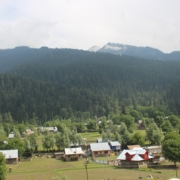What was the United Nations Malaysia Mission of 1963?
Topic of Study [For H2 History Students]:
Paper 2: Regional Conflicts and Co-operation
Source Based Case Study
Theme III Chapter 1: Inter-state tensions and co-operation: Causes of inter-state tensions
Historical context: A proposed merger and a political backlash
On 27 May 1961, the first Malayan Prime Minister Tunku Abdul Rahman announced the proposal to form a ‘Mighty Malaysia’ that included the Borneo territories (Sabah and Sarawak), Brunei and Singapore. The merger would lead to the formation of a Malaysian Federation.
However, Sukarno of Indonesia had opposed the proposed Federation of Malaysia after the Brunei Revolt. In December 1962, the North Kalimantan National Army (Tentera Nasional Kalimantan Utara) fought for independence, rejecting the plan to join the Federation. In response, the British sent troops from Singapore to Brunei to crush to revolt. A month later, Sukarno’s chief architect announced the Confrontation (Konfrontasi) policy.
Throughout the Brunei rebellion, Radio Jakarta had broadcast a series of inflammatory statements designed to destabilize British influence in the region and then on 20 January 1963 Foreign Minister Dr Subandrio declared that Malaya represented the ‘accomplices of neo-colonists and neo-imperialist forces that were hostile to Indonesia’ and from henceforth Indonesia would adopt a policy of konfrontasi. Konfrontasi, literally translated as confrontation, had been widely used in Indonesia for years as a term to refer to the diametrically opposed differences between conservative traditional and liberal modern modes of thought and cultural expression.
An excerpt from The Brunei Revolt: 1962-1963 by Nicholas van der Bijl
Attempts at defusal of tensions: The United Nations Malaysia Mission
In May 1963, Sukarno and the Tunku met to hold talks on how to resolve their differences over the Federation. Sukarno claimed that Indonesia would not oppose the Tunku should the people of North Borneo agree to join the Federation.
On 31 July 1963, Malaya, Indonesia and the Philippines signed the Manila Accord, signifying the mutual consensus to ascertain the wishes of the people in North Borneo whether to join the Malaysian Federation. The Accord was drafted in accordance to the United Nations General Assembly Resolution 1541 (XV).
Then, the United Nations Secretary-General U Thant led a mission to facilitate the referendum in North Borneo. However, on 29 August 1963, the Tunku announced that the Federation of Malaysia would be established on 16 September. This unilateral decision had angered Sukarno, who viewed Tunku’s action as a violation of their initial agreements.
During the course of the inquiry, the date of 16 September 1963 was announced by the Government of the Federation of Malaya with the concurrence of the British Government, the Singapore Government and the Governments of Sabah and Sarawak, for the establishment of the Federation of Malaysia. This has led to misunderstanding, confusion, and even resentment among other parties to the Manila agreement, which could have been avoided if the date could have been fixed after my conclusions had been reached and made known.
An excerpt from the ‘Final Conclusions of the Secretary-General regarding Malaysia‘, 13 September 1963.
As described by U Thant, the announcement was perceived to be a premature decision made by the Tunku which Thant thought should have been undertaken only after the completion of the UN mission. Nevertheless, the mission reported stated that the peoples of North Borneo were in favour of joining Malaysia, thus legitimising the Tunku’s plan. Excerpt for Brunei, Singapore, North Borneo and Malaya merged to form the Federation was planned on 16 September.
What can we learn from this article?
Consider the following question:
– How far do you agree that ideology was the main reason for the Indonesian Confrontation of 1963?
Join our JC History Tuition to learn more about the Indonesian Confrontation and other causes of inter-state tensions. The H2 and H1 History Tuition feature online discussion and writing practices to enhance your knowledge application skills. Get useful study notes and clarify your doubts on the subject with the tutor. You can also follow our Telegram Channel to get useful updates.
We have other JC tuition classes, such as JC Math Tuition and JC Chemistry Tuition. For Secondary Tuition, we provide Secondary English Tuition, Secondary Math tuition, Secondary Chemistry Tuition, Social Studies Tuition, Geography, History Tuition and Secondary Economics Tuition. For Primary Tuition, we have Primary English, Math and Science Tuition. Call 9658 5789 to find out more.











